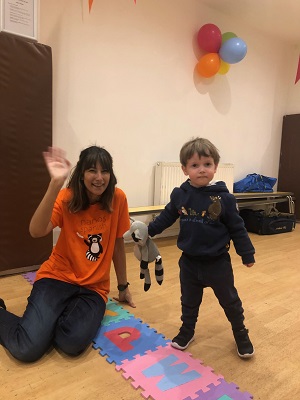
If there is one area where Marley probably doesn’t need too much encouragement at this moment, it’s his language. The little guy talks almost as much as me!
In fact, his speech is now so sophisticated that when I didn’t get him his milk fast enough the other day, he threatened to “put me in the cooking pot.”
And he even added his own little spin to that phrase (picked up from Peter Rabbit) this week, shouting at his Mummy:
“I’M GOING TO PUT YOU IN HOSPITAL!”
Nevertheless – and despite this chilling warning – I feel it’s good to introduce him to new environments, meet new people and develop skills – even if they might just be enhancing existing ones.
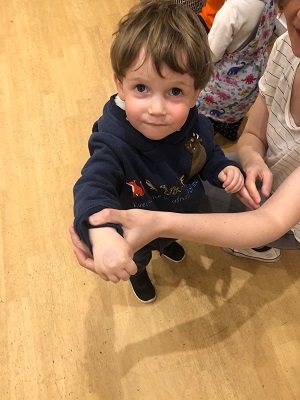
We’ve tried local football, swimming & music classes and they’ve all been excellent for his social and physical development. But what about a foreign language class, especially for a little boy who isn’t even three yet?
Learning Spanish
When I picture Marley learning Spanish, I have this image of him in a classroom – in fact, in MY classroom at high school. The one where I learned French & German. That’s right, the one Mr Wright chucked me out of for making fun of him.
I imagine Marley sitting there, writing out lines of Spanish, listening to exercises on the headsets and practicing his verb conjugations.
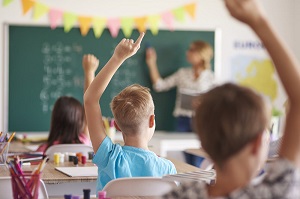
Quite obviously, it was never going to be like that in reality.
The truth is that when it comes to teaching toddlers, the key is keeping their attention and engaging them through little exercises and song.
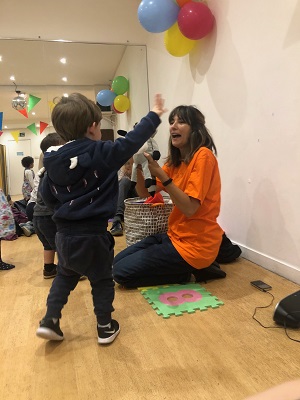
Josefina – the owner of Nanos Spanish in South West London, and the teacher of the Spanish class we recently took Marley along to – told me her classes are not only designed to increase kids’ vocabularies.
“They (toddlers) are starting to recognise the speech patterns they’ve been hearing since birth. The earlier you introduce a second language, the easier it will be for your child to pick up its unique sounds.”
Josefina, Nanos Spanish owner
And amazingly, most kids of Marley’s age don’t actually have a problem learning two languages at once.
“Children will have no difficulty in learning two languages, they just need the right exposure – and because they have no fear of getting things right or wrong, they just go for it!”
I was slightly worried before we went to Josefina’s class that it would just be full of kids who already speak Spanish at home. But even though it kind of was, it really didn’t matter.
“At our classes we have a mixture of children who come from bilingual backgrounds, and children whose parents just value the importance of learning a second language.”
The Class
And it was great! After Marley’s initial 5-10 minutes of apprehension (which is not unusual for him) he soon got involved. Even though none of us understood every word, it was really easy for Marley to keep up with what was happening as Josefina used a mixture of toys, puppets and music to illustrate.
Marley even managed a little “adios!” at the end of the class (although some of his nursery teachers are Spanish so I think they’d prepared him).
Learning at home
Reinforcing his learning at home will help too – and it’s fairly simple. Anything new we want to point out to Marley, we can now try to teach him the English word AND the Spanish one – it’s not exactly difficult to Google it these days.
Plus, there are tons of bilingual books out there, and Josefina has a whole load of other tips on her own blog that can help.
So I don’t expect the little man to be fluent immediately – but how cool would it be if we could teach him the basics of a second language before he even starts school?
I mean, he’s got to be better than his Daddy….
“Quattro cervezas por favor!”
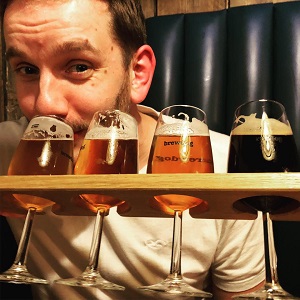

Nanos Spanish offers Spanish classes for toddlers & pre-school children across South West London, in Earlsfield, Clapham, Balham and Wimbledon.
If you want to contact Josefina you can email her at [email protected] or contact her via social media

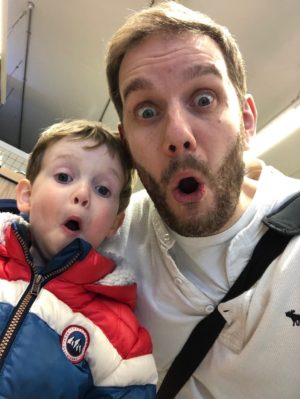
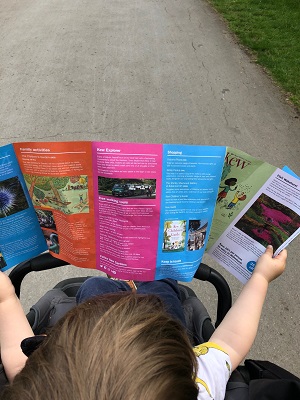
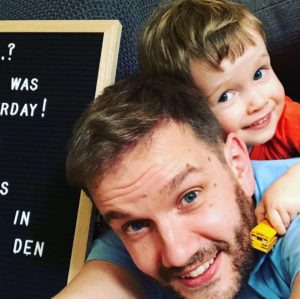

Comments (1)
Gerda Stevenson
May 20, 2019 at 9:44 am
Yes – being bilingual is a huge advantage educationally, and it’s long since been proven to be so. The term for the educational advantage it gives young people is ‘cognitive plasticity’ – meaning it makes your thinking flexible, which is fairly obvious, because different languages embody different concepts, e.g. in Scots Gaelic, you don’t say “I’m hungry”, you say “The hunger is on me”, a radically alternative view, when you think about it. The English is simply a description of oneself, a noun and an adjective, ‘I’ being the single subject, and ‘hungry’ being the description of that subject. The Gaelic, however, is much more complex and nuanced: it tells us that hunger is an actual thing, or a state, and implies that it has come to you, and placed itself upon you. The subject of the sentence is the hunger (and not just ‘hunger’, or ‘a’ hunger, but ‘The’ hunger) and ‘I’ becomes the object upon which the subject is placed. So if you’re bilingual in English and Scots Gaelic, you have access to two entirely different views of what it means to experience hunger. My son is bilingual and literate in both these languages, and I’m so glad. He went through Gaelic medium nursery and primary school, and studied Philosophy (in English) at university, getting a very good degree. Being bilingual also makes it much easier to go on to learn more languages if you have two, and, statistically, is proven to increase the access and understanding of other subjects, such as the sciences. Makes sense! And of course, it gives you the joy of access to other cultures. Sadly, the monoglot British Empire mentality often prevails. How many times have I heard people say to me, with an edge of aggression: “You’ll only confuse the child! And anyway, what’s the point? Everyone speaks English anyway!” as if having another language is somehow a threat to some cherished status quo. English IS all around us, which is why there’s no way your child won’t learn it, so if your child learns another language it can only be win-win! Lord help us. This mentality is on the rise, I fear, in the current toxic political climate. It’s GREAT to hear that Marley is learning Spanish!
Comments are closed